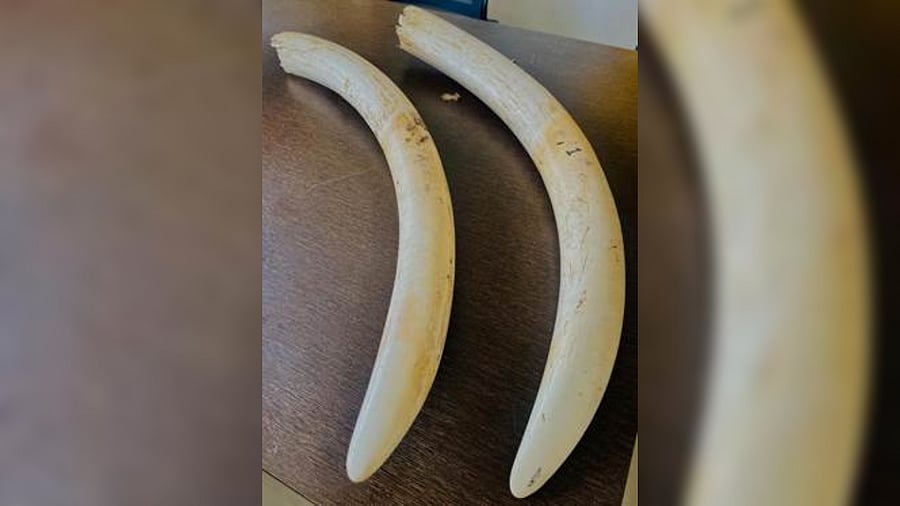
The two ivory tusks weigh 6.8 kg.
SPECIAL ARRANGEMENT
Bengaluru: Officers from the Directorate of Revenue Intelligence (DRI) in Bengaluru recovered two elephant tusks, weighing 6.8 kg, after busting a syndicate’s illegal trade attempt on Tuesday night.
An official release from the Ministry of Finance said that the operation took place on the intervening night of Tuesday and Wednesday when three suspects, travelling in an auto-rickshaw, were arrested on the outskirts of Bengaluru.
The suspects were found to be in possession of the two ivory tusks concealed within a large bag. Subsequently, the officers identified and apprehended four additional accomplices associated with the syndicate. All seven people involved were promptly arrested.
Elephant tusks, classified under Schedule I of the Wildlife Protection Act (WPA) of 1972, were seized by the officers under Section 50 of the Act. This provision empowers forest or police officers, not below the ranks of a sub-inspector, to seize any animal or animal article and apprehend individuals engaged in such illicit trade.
Recent amendments to the WPA in 2023 have extended the jurisdiction of DRI officers, renowned for their anti-smuggling efforts across international borders, to combat domestic illegal wildlife trade as well.
2nd incident in a year
This is the second instance in a year where tusks have been seized from illegal trade activities in Bengaluru.
In June 2023, Girinagar police arrested two people attempting to sell an elephant tusk weighing 25.5 kg. The accused allegedly acquired the tusk from a dead elephant near their village in Kanakapura. The legal proceedings for this case are ongoing in court.
Rampant poaching
Wildlife conservationist Avinash Krishnan, who serves as the national director at A Rocha India, a non-profit organisation studying elephants in the Bannerghatta National Park, suggested that the poaching likely occurred within the Bannerghatta-Hosur landscape.
"We have not been able to fully use technological tools to track poaching in the protected area limits of the Bannerghatta National Park and the North Cauvery Wildlife Sanctuary. Since busting poaching relies heavily on ground-level sources, and is never a stray incident, we need a formal protocol involving regular forest monitoring and proactive reporting of such incidents across both states," he said.
He added that it is necessary to scientifically profile elephants and asses their population numbers, particularly those of bull elephants, to address gaps in conservation efforts.
